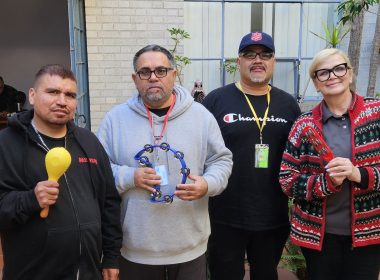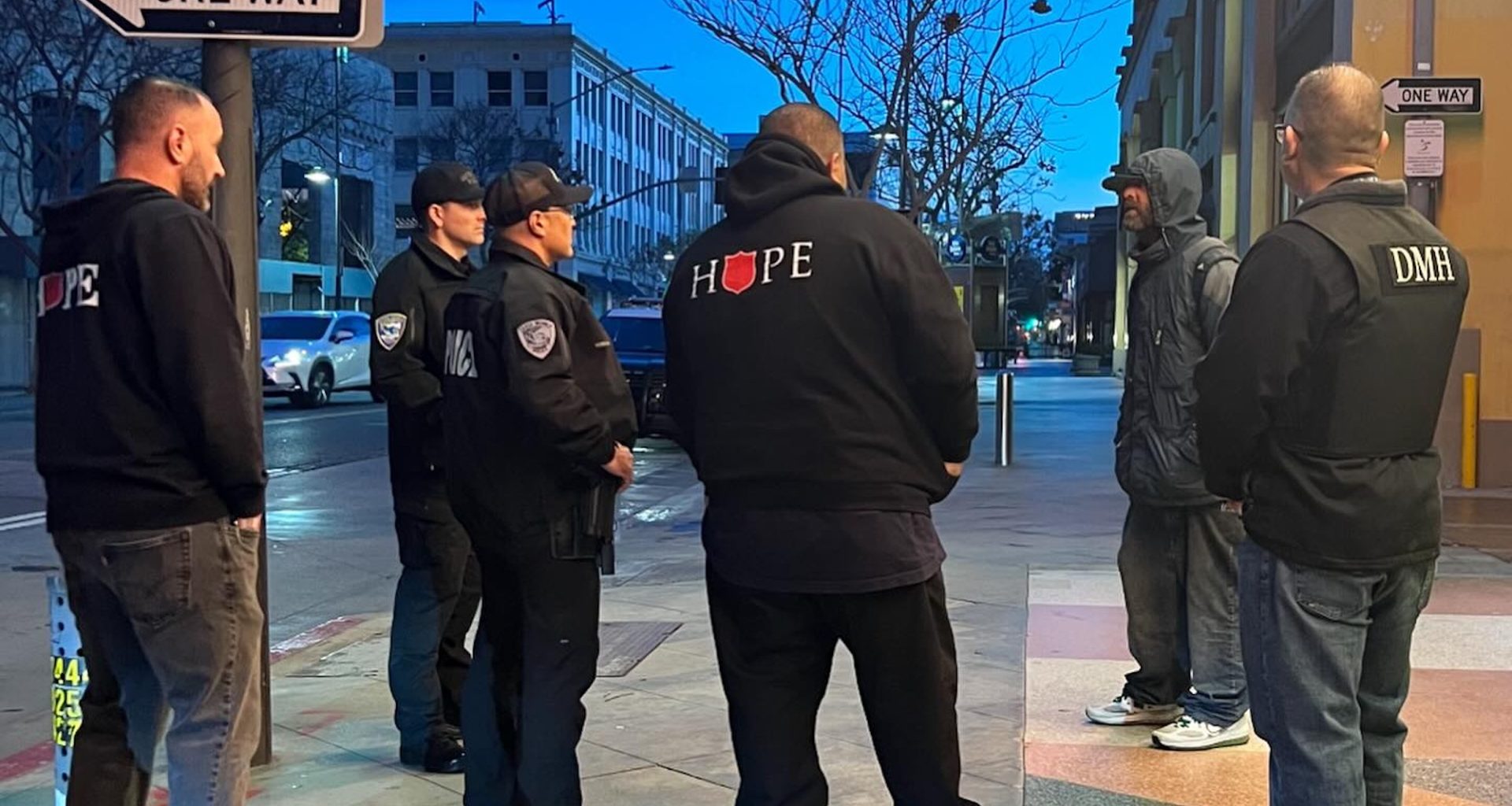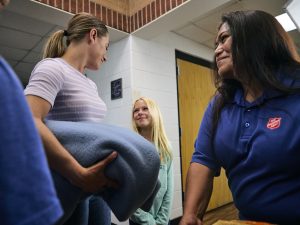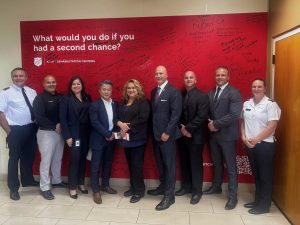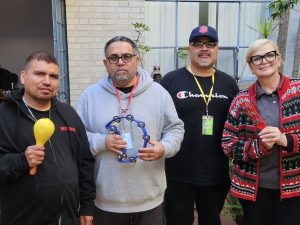The Salvation Army is helping people experiencing homelessness with outreach, support and resources to rebuild their lives.
As dawn breaks over Santa Monica, Salvation Army outreach workers take to the streets alongside the Santa Monica Police Department (SMPD) to engage with individuals experiencing homelessness. The group offers them resources, guiding them toward shelter and support services.
The joint effort between the SMPD, the Department of Mental Health (DMH), The Salvation Army, and other social service organizations meets people where they are to help them overcome obstacles and gain stability.
The Salvation Army Santa Monica Hope Team joined in November 2022 after receiving a grant from the SMPD. The funding supports their mission to build trust and connect individuals with long-term support through Salvation Army programs and community resources.
“The police conduct weekly walks to inform unhoused neighbors that they need to relocate,” said Santa Monica Corps Hope Team Outreach Worker Jose Puga. “As the Hope Team, we join to tell them about alternative options to sleeping on the streets.”
The Hope Team operates as part of the Homeless Liaison Program (HLP) with the SMPD, which follows an engagement model focused on relationship building, networking, outreach, education and enforcement.
When the SMPD plans an outreach day, they call the Hope Team to accompany them, often going out at 5 a.m.
“It’s a way to advocate for people experiencing homelessness in Santa Monica,” said Captain James Fleming, Santa Monica Corps Officer. “The team connects people to whatever the next step is to get them the support they need, whether it’s shelter, medical care, substance abuse treatment, mental health services or care homes.”
“Even if someone is at their rock bottom, there’s always a way to get back up and find a different path.”
Jose Puga, Santa Monica Corps Hope Team Outreach Worker
The Greater Los Angeles Homeless Count recorded 774 people experiencing homelessness in Santa Monica in 2024, a 6 percent decrease from 2023.
In 2024, the Hope Team engaged with over 350 individuals, approximately 108 of whom secured interim or permanent housing through the program, according to Fleming.
“We call it the Hope Team because they’re bringing hope to those who need it most,” Fleming said.
The Hope Team consists of Salvation Army employees and volunteers, more than half of whom have experienced homelessness and addiction before finding support and recovery through The Salvation Army Adult Rehabilitation Center (ARC).
“We make connections with people because we can understand their perspective,” Puga said. “We just tell them, ‘I’ve been in your shoes before; I understand how you may be feeling.’”
Puga, a 2020 graduate of the Santa Monica ARC, knows the importance of patience and active listening when supporting those struggling with addiction or homelessness first hand.
“It was The Salvation Army ARC that came alongside me to help rebuild my life,” Puga said. “The program taught me about responsibility and commitment, both key to my sobriety.”
Now, Puga is dedicated to sharing how the ARC played a crucial role in his recovery and gave him hope to change.
“Everyone has their own stories and experiences,” he said. “I listen and tell people it’s not too late to grow or break patterns.”
If someone isn’t interested in further case management, the Hope Team invites them to the Santa Monica Corps’ Tuesday and Thursday hot meal program.
“We’ve found that, at the very least, people are willing to join our feeding program,” Puga said. “This gives us ongoing opportunities to engage.”
He recalled one client who visited for meals a few times before informing the Hope Team he was ready to get back on his feet.
Jesus Vargas-Flores, Hope Team Case Manager and Santa Monica ARC graduate, then assisted him in obtaining his birth certificate and a new ID. The man then began attending church at the corps and volunteering during his free time.
“Continued support is important,” Puga said. “Someone may decline help at first, but we tell them we’ll be here if they change their mind.”
If clients require assistance the Hope Team can’t provide, the team connects them to local resources.
“We’ll make hundreds of calls to ensure someone gets the assistance they need,” he said. “Even if someone is at their rock bottom, there’s always a way to get back up and find a different path.”
Do Good:
- Interrupt the free flow of junk (e)mail with something good. Get the Do Good Digest, our free, 3-minute weekly newsletter used by 20k+ hopefuls for a quick pick-me-up in a busy day.




